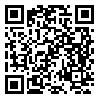Volume 7, Issue 5 (2016)
LRR 2016, 7(5): 1-22 |
Back to browse issues page
Download citation:
BibTeX | RIS | EndNote | Medlars | ProCite | Reference Manager | RefWorks
Send citation to:



BibTeX | RIS | EndNote | Medlars | ProCite | Reference Manager | RefWorks
Send citation to:
Rahmani H, Modarresi Y, Ghiasian M S, Zandi B. Politeness and Impoliteness in Persian-Speaking Youngsters’ Novels. LRR 2016; 7 (5) :1-22
URL: http://lrr.modares.ac.ir/article-14-4931-en.html
URL: http://lrr.modares.ac.ir/article-14-4931-en.html
1- Ph.D. student in linguistics general, Payam Noor University, Tehran, Iran
2- Professor in Linguistics, Institute for Humanities and Cultural Studies, Tehran, Iran
3- Assistant Professor, department of Linguistics, Payam-e-Noor University, Tehran, Iran
4- Professor in Linguistics, department of Linguistics, Payam-e-Noor University, Tehran, Iran
2- Professor in Linguistics, Institute for Humanities and Cultural Studies, Tehran, Iran
3- Assistant Professor, department of Linguistics, Payam-e-Noor University, Tehran, Iran
4- Professor in Linguistics, department of Linguistics, Payam-e-Noor University, Tehran, Iran
Abstract: (10097 Views)
Importing the pragmatic theories of ‘politeness’ (Brown and Levinson, 1987) and ‘impoliteness’ (Culpeper, 1996) into the domain of literary studies, this article intends to investigate politeness and impoliteness strategies used in ten highly acknowledged Persian youngsters’ novels published from 2002 to 2012. For a novel to be included in the samples it should not be translation; most of its events should be narrated through dialogues; and that it should have won the majority of prizes for youngsters’ literature. This article addresses two central research questions: (1) How is the characters’ uses of politeness and impoliteness strategies in peer-group and non-peer-group vary? (2) In general, which strategies (politeness strategies or impoliteness strategies) are more frequently used by characters in Persian-speaking Youngsters’ Novels? The results, came by Chi-Square test, demonstrate that the characters in Persian youngsters’ novels are more inclined to using impolite strategies in peer-group interactions compared to non-peer-group interactions and that characters, in general, make more use of politeness strategies than impoliteness strategies.
| Rights and permissions | |
 |
This work is licensed under a Creative Commons Attribution-NonCommercial 4.0 International License. |






